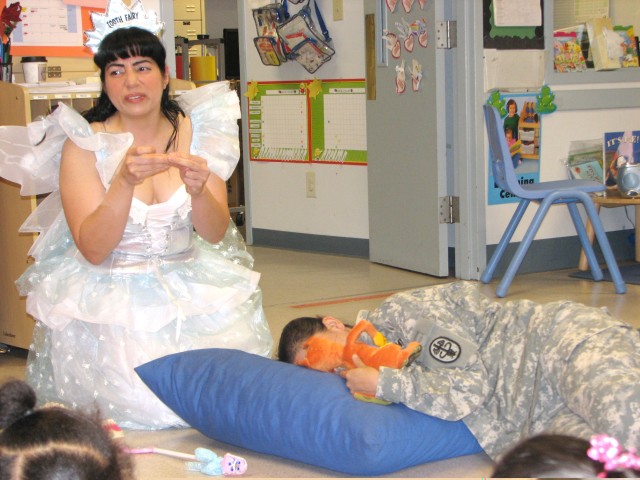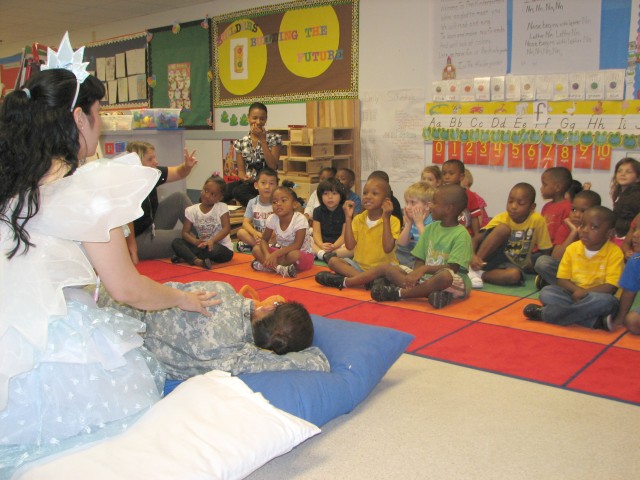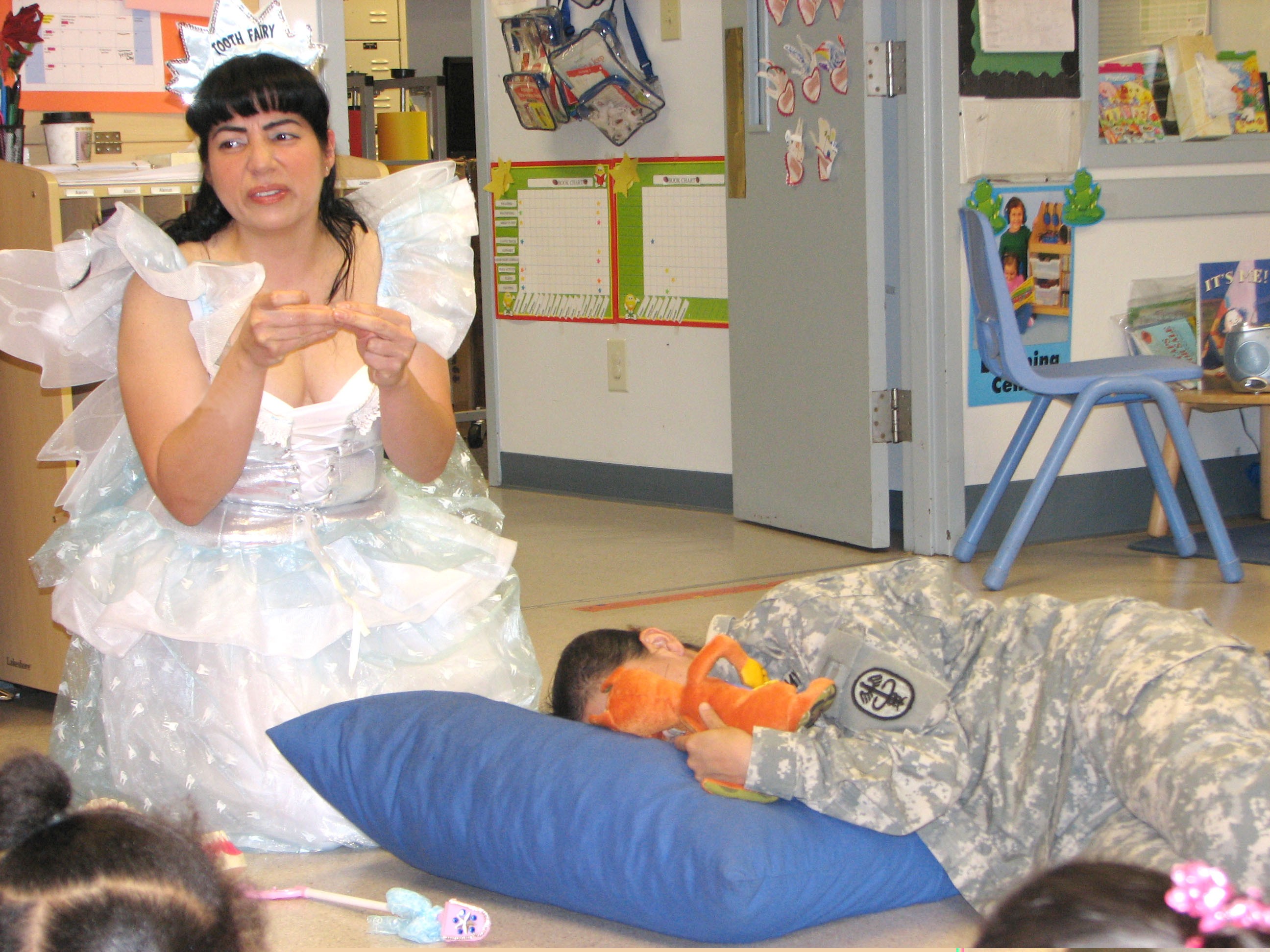On Sept. 22, children at the Child, Youth and School Services pre-kindergarten (pre-k) class got a visit from the "tooth fairy."
Rather than leave money, the tooth fairy - played by Lawrence Joel Troop Medical Clinic (LJTMC) registered dental hygienist Lorraine Lobos - left the children with lessons on taking care of their teeth.
"Children who learn proper oral care at a young age benefit from those good habits for the rest of their lives," she said.
Although most of the class probably won't start losing their baby teeth for another two years (Lobos said boys tend to start losing their baby teeth at age 7, girls at age 6), Lobos told students they need to take care of their teeth now if they want the tooth fairy to leave them something good later.
With help from Spc. Myrna Marcucci, LJTMC dental assistant, Lobos put on a skit for the children that emphasized the importance of proper oral care.
During the skit, Marcucci played a child who didn't brush her teeth and ate a lot of sweets.
The character had also just lost a tooth and had placed it under her pillow expecting a reward.
When the tooth fairy came for the tooth that night, she was so disappointed in its condition that instead of leaving money, she left the girl with advice on how to take better care of her teeth.
Lobos shared this advice with the children, telling them to floss and brush their teeth at least three times a day - in the morning, after lunch and before bed. Lobos told the children that brushing should take two minutes: one for the top row of teeth and one for the bottom.
Lobos also told children it's important for their parents to help them brush properly.
"I strongly believe that parents play an important role in both modeling and teaching good oral hygiene," she said.
Unfortunately, Lobos said she sees many children with poor teeth.
She added many parents do not pay much attention to a child's baby teeth, figuring they don't have to spend much effort on them since they are destined to fall out anyway.
"Baby teeth are just as important as permanent teeth. They help the child to bite and chew food, help them speak correctly, save space for the child's permanent teeth and help guide the permanent teeth into place," Lobos said. "That is why it is so important to initiate a program of good oral hygiene for children early on."
Lobos said parents should begin this process before the age of 2, making sure to bring their child to a dentist before then.
She added although it could be frightening for a child that young, if parents exhibit a positive attitude, most children will become comfortable visiting the dentist. Parents, Lobos said, should maintain that interest even as a child grows older.
Parents should help their child brush his or her teeth roughly until the age of 8. Prior to that age, most children do not have the dexterity or coordination to perform brushing well, Lobos said.
Even after a child starts brushing on his or her own, parents should inspect their child's teeth after brushing, Lobos said.
Lobos also cautioned parents to buy children's toothpaste, as adult toothpaste has too much fluoride in it, which could lead to fluorosis (discoloration in a child's teeth).
After educating the children, Lobos asked them what Marcucci's character should do. Once correct responses were given, Marcucci promised to take better care of her teeth, leading to a future appointment with the tooth fairy that ended in receiving a quarter rather than a lecture on how to take care of teeth.
Victoria Barrera, pre-k teacher, said the event was very educational and tied in to the pre-k curriculum.
"Right now we're learning 'All about me and how to take care of me,'" she said. "The tooth fairy gave good incentives to have good teeth."
Additionally, Barrera said it is important for kids, especially in Georgia, to have good teeth. A dental assessment is part of the physical assessments children take before entering Georgia schools, she added.
Even if a Family moves out of Georgia to a state that doesn't have this requirement, Lobos said it is important to promote good oral hygiene at the very beginning of a child's life, leading to a healthier adult years later.
"Your overall health starts in your mouth," Lobos said. "Let's help our children."




Social Sharing